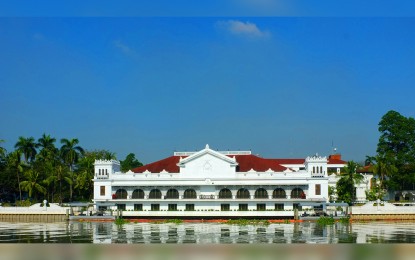
MANILA – Malacañang on Tuesday welcomed the launch of the Build Back Better World (B3W) initiative, an infrastructure plan of leaders of the Group of Seven (G7) partners, to challenge China's massive Belt and Road Initiative (BRI).
Despite his acknowledgment of the new infra plan, Presidential Spokesperson Harry Roque said the Palace would reserve its judgment until it comes to fruition.
“We welcome that, but to see and to actually receive is to believe,” he said in a Palace press briefing.
Roque, meanwhile, expressed hope that the Philippines and China would pursue more projects under the multi-trillion-dollar BRI.
“Well, yung mga proyekto po na naibigay po ng Tsina ay kabahagi rin po ‘yan ng One Belt, One Road project ng Tsina (Well, the projects given by China are part of the One belt, One Road project). Although, I have said this to the Chinese Ambassador [to Manila Huang Xilian], sana mas marami po para mas malaki yung impact (I hope there would be more so that it would make a bigger impact),” he added.
In November 2018, the Philippines and China signed a memorandum of understanding (MOU) on Manila's intention to take part in Beijing's BRI.
Under the MOU, the two countries will work together to achieve "sustainable growth and development" through the BRI.
China’s BRI, a major foreign policy initiated by President Xi Jinping in 2013, plans to connect Beijing to the rest of Asia, Africa, and Europe through a series of ports, railways, roads, and industrial parks.
If fully realized, the global infrastructure plan could set the stage for the world economic landscape in the years to come.
President Rodrigo Duterte, in previous speeches, has touted China’s crucial role in his administration’s Build, Build, Build infrastructure program.
US President Joe Biden and other leaders of G7, also composed of France, the UK, Canada, Italy, Japan, and Germany, are hopeful that the B3W initiative will provide a transparent infrastructure partnership to help narrow the USD40 trillion needed by developing nations by 2035.
“Through B3W, the G7 and other like-minded partners will coordinate in mobilizing private-sector capital in four areas of focus—climate, health, and health security, digital technology, and gender equity and equality—with catalytic investments from our respective development finance institutions”, according to a fact sheet from The White House. (PNA)
